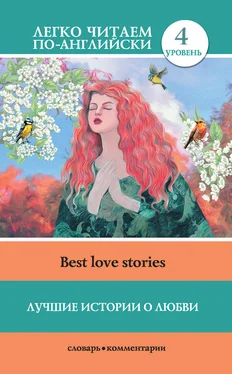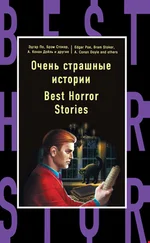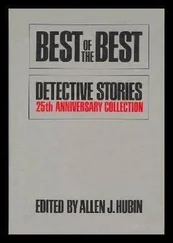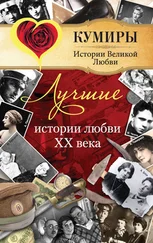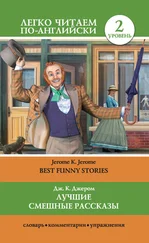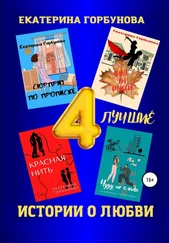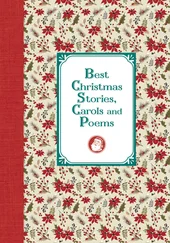“How did you like my friend, Megan?”
She forced down her upper lip, as if afraid that to smile was not polite. “He was a funny gentleman; he made us laugh. I think he is very clever.”
“What did he say to make you laugh?”
“He said I was a daughter of the bards. What are they?”
“Welsh poets, who lived hundreds of years ago.”
“Why am I their daughter, please?”
“He meant that you were the sort of girl they sang about.”
She wrinkled her brows. “I think he likes to joke. Am I?”
“Would you believe me, if I told you?”
“Oh, yes.”
“Well, I think he was right.”
She smiled.
And Ashurst thought: ‘You are a pretty thing!’
“He said, too, that Joe was a Saxon type. What would that be?”
“Which is Joe? With the blue eyes and red face?”
“Yes. My uncle’s nephew.”
“Not your cousin, then?”
“No.”
“Well, he meant that Joe was like the men who came over to England about fourteen hundred years ago, and conquered it.”
“Oh! I know about them; but is he?”
“Garton’s crazy about that sort of thing; but I must say Joe does look a bit Early Saxon.”
“Yes.”
That “Yes” tickled Ashurst. It was so graceful, so conclusive, and politely acquiescent in what was evidently greek to her. [69]
“He said that all the other boys were regular gipsies. He should not have said that. My aunt laughed, but she didn’t like it, of course, and my cousins were angry. Uncle was a farmer – farmers are not gipsies. It is wrong to hurt people.”
Ashurst wanted to take her hand and give it a squeeze, but he only answered:
“Quite right, Megan. By the way, I heard you putting the little ones to bed last night.”
She flushed a little. “Please to drink your tea – it is getting cold. Shall I get you some fresh?”
“Do you ever have time to do anything for yourself?” “Oh! Yes.”
“I’ve been watching, but I haven’t seen it yet.”
She wrinkled her brows in a puzzled frown, and her colour deepened.
When she was gone, Ashurst thought: ‘Did she think I was chaffing her? I wouldn’t for the world!’ He was at that age when to some men “Beauty’s a flower,” as the poet says, and inspires in them the thoughts of chivalry. Never very conscious of his surroundings, it was some time before he was aware that the young man whom Garton had called “a Saxon type” was standing outside the stable door in his soiled brown cords, [70]muddy boots, and blue shirt; red-armed, red-faced, the sun turning his hair from tow to flax; immovably stolid, unsmiling he stood. Then, seeing Ashurst looking at him, he crossed the yard and disappeared round the end of the house towards the kitchen entrance. A chill came over Ashurst’s mood. Clods? With all the good will in the world, how impossible to get on terms with them! And yet – see that girl! Her shoes were split, her hands rough; but – what was it? Was it really her Celtic blood, as Garton had said? – she was a lady born, a jewel, though probably she could do no more than just read and write!
The elderly, clean-shaven man he had seen last night in the kitchen had come into the yard with a dog, driving the cows to their milking. Ashurst saw that he was lame.
“You’ve got some good ones there!”
The lame man’s face brightened. He had the upward look in his eyes which prolonged suffering often brings.
“Yeas; they’re proper beauties; good milkers too.”
“I bet they are.”
“Hope your leg’s better, sir.”
“Thank you, it’s getting on.”
The lame man touched his own: “I know what it is, myself; it is a main worrying thing, the knee. Mine’s been hurting for ten years”.
Ashurst made the sound of sympathy which comes so readily from those who have an independent income, and the lame man smiled again.
“Mustn’t complain, though – they might have had it off.”
“Ho!”
“Yes; and compared with what it was, it is almost good now.”
“They’ve put a bandage of splendid stuff on mine.”
“The maid she picks it. She’s a good maid with the flowers. Some people seem to know the healing in things. My mother was a rare one for that. Hope you’ll soon be better, sir. Go on, there!”
Ashurst smiled. “With the flowers!” A flower herself!
That evening, after his supper of cold duck, junket, [71]and cider, the girl came in.
“Please, auntie says – will you try a piece of our Mayday cake?”
“If I may come to the kitchen for it.”
“Oh, yes! You’ll be missing your friend.”
“Not I. But are you sure no one minds?”
“Who would mind? We shall be very pleased.”
Ashurst rose too suddenly for his stiff knee, staggered, and fell down. The girl held out her hands. Ashurst took them, small, rough, brown; checked his impulse to put them to his lips, and let her pull him up. She came close beside him, offering her shoulder. And leaning on her he walked across the room. That shoulder seemed quite the pleasantest thing he had ever touched.
That night he slept like a top, [72]and woke with his knee of almost normal size. He again spent the morning in his chair on the grass patch, writing down verses; but in the afternoon he wandered about with the two little boys Nick and Rick. It was Saturday, so they were early home from school; quick, shy, dark little rascals of seven and six, soon talkative, for Ashurst had a way with children. By four o’clock they had shown him all their methods of destroying life, except the tickling of trout; and with trosers tucked up, lay on their stomachs over the trout stream. They tickled nothing, of course, for their giggling and shouting scared every fish away. Ashurst, on a rock at the edge of the beech clump, watched them, and listened to the cuckoos, till Nick, the elder and less persevering, came up and stood beside him.
“The gipsy bogle sits on that stone,” he said.
“What gipsy bogle?”
“Dunno; [73]I’ve never seen him. Megan says he sits there; and old Jim saw him once. He was sitting there the night before our pony kicked in father’s head. He plays the fiddle.”
“What tune does he play?”
“Dunno.”
“What’s he like?”
“He’s black. Old Jim says he’s all over hair. He’s a proper bogie.” The little boy’s dark eyes slid round. “Do you think he might want to take me away? Megan’s afraid of him.”
“Has she seen him?”
“No. She’s not afraid of you.”
“I should think not. Why should she be?”
“She says a prayer for you.”
“How do you know that?”
“When I was asleep, she said: ‘God bless us all, and Mr. Ashes.’ I heard her whispering’.”
“You’re a little rascal to tell what you hear when you’re not meant to hear it!”
The little boy was silent. Then he said aggressively:
“I can skin rabbits. Megan, she can’t bear skinning them. I like blood.”
“Oh! you do; you little monster!”
“What’s that?”
“A creature that likes hurting others.”
The little boy scowled. “They’re only dead rabbets, what we eat.”
“Quite right, Nick. I beg your pardon.”
“I can skin frogs, too.”
But Ashurst had become absent. “God bless us all, and Mr. Ashes!” And puzzled by that sudden inaccessibility, Nick ran back to the stream.
When Megan brought his tea, he said:
“What’s the gipsy bogle, Megan?”
She looked up, startled.
“He brings bad things.”
“Surely you don’t believe in ghosts?”
“I hope I will never see him.”
“Of course you won’t. There aren’t such things. What old Jim saw was a pony.”
“No! There are bogles in the rocks; they are the men who lived long ago.”
Читать дальше
Конец ознакомительного отрывка
Купить книгу
